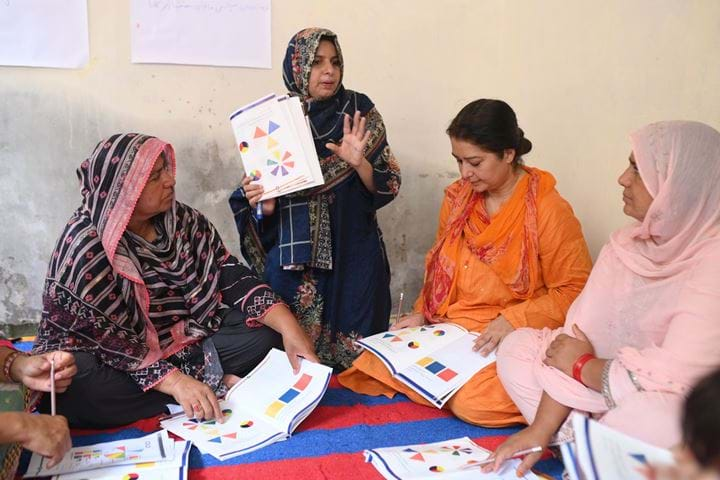Catalysing women-led enterprise growth in Pakistan

Why this is important
Even before the COVID-19 pandemic devastated lives and livelihoods, women’s labour force participation rate in Pakistan was just 22%, as compared to 82% for men and the global average of 47%. Of the women in work, 75% are classified as in “vulnerable employment” with low pay, lack of job security and poor working conditions. The reasons behind this include:
- Low educational attainment and poor access to skills development
- Cultural and societal norms and attitudes affecting women’s agency and mobility
- Limited access to markets, networks, knowledge and services – particularly financial
Global evidence, as well as evidence from the British Asian Trust and partner’s own programmes, has shown that enterprise development can provide an effective and sustainable route out of poverty for women. The British Asian Trust’s recent UK government-funded Women’s Economic Empowerment programme in Pakistan, for example, supported over 8,000 women to set up successful enterprises, increasing their incomes by an average of 40%. Yet only 1% of women in Pakistan are engaged in some sort of enterprise – the lowest percentage in the world.
Project Partners: Shirakat; Kaarvan Crafts Foundation; Akhuwat
Duration: 2022 - 2025
Project goals
The British Asian Trust and its partners in Pakistan are catalysing the growth of women-led enterprises in three cities in Punjab, creating sustainable livelihoods for hundreds of vulnerable women and an economic environment that could benefit thousands more.
In partnership with Target Foundation, the British Asian Trust is expanding our proven approach to women’s economic empowerment to further address systemic barriers faced by women-led enterprises in Faisalabad, Rawalpindi and Sialkot.
Women entrepreneurs are benefiting from increased access to financial resources and advice. The availability of micro-business loans and enterprise support is encouraging women-led enterprises. Assisted by the Chamber of Commerce Women’s Business Support Units, access to financial services is creating new jobs for women in enterprises. Through a knowledge and learning agenda, that includes stakeholder events, there is a strengthening of the sector enabling collaboration and adopting best practices in the current market for developing sustainable livelihoods in women-led enterprises or their supply chains.
What we are doing
The British Asian Trust is committed to an outcomes-based approach that ensures we can evidence real and meaningful change for the communities we serve. This project incorporates a structured Monitoring, Evaluation & Learning (MEL) framework centred on and involving women entrepreneurs. The framework includes a list of outcomes and outputs with assigned targets for each quarter of the year to monitor progress.
With a grant from CAF America on behalf of the generosity of the Target Foundation, the British Asian Trust and partners Shirakat, Kaarvan Crafts Foundation and Akhuwat have created a space for women entrepreneurs to benefit from with increased access to financial resources and advice.
Key outcomes of the project include:
- 700 women-led microenterprises increase their business revenue by at least 15%
- 1,800 women working in those microenterprises, or their supply chain increase their earnings by at least PKR 1,000 ($6.50) per month
- Membership of women-led microenterprises within the Chambers of Commerce in target cities will increase by at least 10%
